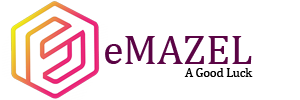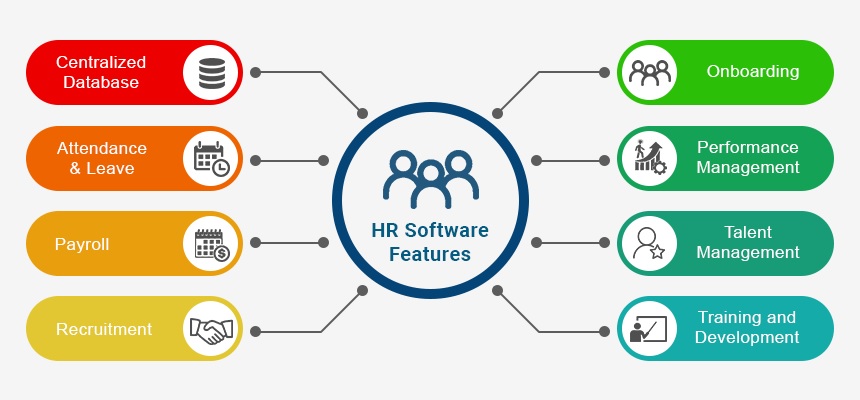Benefits And Uses of HR Management System
What is HR Management Software
HR Management Software (also known as HRMS or HRIS) is a software application used to manage various aspects of HR operations within an organization. It can be used to manage employee information, recruitment, payroll, benefits administration, performance evaluation, training and development, time and attendance tracking, and more.
HR Management Software can streamline HR processes, reduce administrative workload, and improve data accuracy. It can also help organizations to comply with legal requirements, provide better visibility and reporting, and enhance communication between employees and HR departments.
HR Management Software can be deployed as a standalone system or as a module of an enterprise resource planning (ERP) system. It can be hosted on-premises or in the cloud and can be accessed via desktop, mobile, or web-based applications.
Benefits of HR Management Software
There are numerous benefits of HR Management Software, including:
- Streamlined HR Processes
HRMS can automate and streamline many HR processes, such as onboarding, time and attendance tracking, payroll processing, benefits administration, and performance evaluation. This reduces manual paperwork and saves time and effort for HR staff.
- Improved Data Accuracy
HRMS can help to ensure data accuracy and consistency across all HR processes, reducing errors and potential legal or compliance issues.
- Enhanced Employee Self-Service
HRMS often includes employee self-service portals that allow employees to update their personal information, view their pay stubs and benefits, request time off, and access other HR-related information and services.
- Better Reporting and Analytics
HRMS can generate reports and provide analytics on various HR metrics such as employee turnover, time and attendance, and performance evaluation. This can help organizations to make data-driven decisions and identify areas for improvement.
- Increased Compliance
HRMS can help organizations comply with legal and regulatory requirements such as labor laws, tax regulations, and reporting requirements.
- Improved Communication and Collaboration
HRMS can facilitate better communication and collaboration between HR staff, managers, and employees by providing a centralized platform for information sharing and workflow management.
- Cost-Effective
Implementing HRMS can result in cost savings by reducing manual administrative tasks, minimizing errors, and optimizing HR processes.
Overall, HR Management Software can help organizations to improve efficiency, productivity, and compliance while providing better services to employees.
Advantages of HR Management System
There are many advantages of using an HR Management System (HRMS). Some of the most significant benefits include:
- Time Savings
HRMS automates many administrative tasks, freeing up HR staff to focus on more strategic activities, such as recruiting, talent management, and employee development.
- Improved Data Accuracy
HRMS eliminates the need for manual data entry, reducing errors and ensuring consistent, accurate data across all HR functions.
- Enhanced Compliance
HRMS can help organizations comply with legal and regulatory requirements related to employment, such as tax and labor laws.
- Greater Efficiency
HRMS streamlines HR processes, such as onboarding, benefits administration, and performance management, reducing the time and effort required to complete these tasks.
- Increased Employee Satisfaction
HRMS provides employees with easy access to their personal data, including pay stubs, performance reviews, and benefits information, enabling self-service and improving transparency.
- Better Reporting and Analytics
HRMS provides managers and HR staff with real-time data on HR metrics, such as turnover, absenteeism, and performance, enabling data-driven decision-making.
- Improved Communication
HRMS provides a central platform for HR staff, managers, and employees to communicate, collaborate, and share information, reducing confusion and enhancing the overall employee experience.
- Scalability
HRMS can easily accommodate growth and changes in an organization, making it a valuable tool for companies that are expanding or evolving.
Overall, an HRMS can help organizations to improve efficiency, reduce costs, and enhance the employee experience, making it a valuable investment for any company.
Disadvantages of HR Management System
While HR Management Systems (HRMS) offer many benefits, there are also some potential disadvantages to consider:
- Initial Costs
Implementing an HRMS can be costly, especially for small organizations. There are often expenses associated with software licensing, implementation, training, and customization.
- Training and Learning Curve
HRMS requires HR staff to be trained to use the system properly, which can take time and effort. There may be a learning curve associated with new software, which can impact productivity in the short term.
- Data Security Risks
HRMS may store sensitive employee data, including personal information, payroll, and health records. If not secured properly, this data could be vulnerable to cyberattacks or data breaches.
- Customization Challenges
Customizing HRMS to meet specific organizational needs can be complex and time-consuming. It may require dedicated resources to ensure that the system is configured correctly.
- Maintenance and Upgrades
HRMS requires ongoing maintenance and upgrades, which can be time-consuming and costly. If not kept up to date, the system may become outdated, leading to potential security vulnerabilities and reduced functionality.
- Reduced Personal Interaction
The use of HRMS may reduce personal interaction between HR staff and employees, leading to a less personal employee experience.
- Limited Flexibility
Some HRMS may have limited flexibility, making it difficult to accommodate unique organizational needs or changes.
Overall, while the benefits of HRMS often outweigh the disadvantages, it is important to consider the potential drawbacks before making a decision to implement an HRMS.
What is the Use of an HR Management System
The use of an HR Management System (HRMS) is to streamline HR processes and improve the efficiency of HR operations within an organization. The primary functions of an HRMS include:
- Recruitment and Applicant Tracking
HRMS can automate job posting, resume screening, interview scheduling, and candidate communication.
- Onboarding
HRMS can facilitate the onboarding process by automating the collection of new hire paperwork, setting up employee accounts, and assigning tasks to new hires and managers.
- Employee Data Management
HRMS can centralize and manage employee data, including personal information, job details, benefits, compensation, and performance history.
- Time and Attendance Management
HRMS can track employee time and attendance, including hours, worked, overtime, and time off requests.
- Payroll Processing
HRMS can automate payroll processing, including calculating pay, deductions, taxes, and generating pay stubs.
- Benefits Administration
HRMS can manage employee benefits, including enrollment, changes, and termination.
- Performance Management
HRMS can facilitate performance management processes, including goal setting, performance reviews, and feedback.
- Learning and Development
HRMS can manage employee training and development, including training tracking and scheduling.
- Compliance and Reporting
HRMS can help organizations comply with legal and regulatory requirements related to employment, including tax and labor laws. It can also generate reports on HR metrics such as employee turnover, absenteeism, and performance.
Overall, an HRMS can help organizations to improve HR efficiency, reduce costs, enhance data accuracy and compliance, and improve the employee experience.
Conclusion on HR Management System
In conclusion, an HR Management System (HRMS) can be a valuable tool for organizations of all sizes. By streamlining HR processes and improving data accuracy, an HRMS can help organizations to reduce costs, improve efficiency, and enhance the overall employee experience.
However, it is important to carefully evaluate the potential benefits and drawbacks of an HRMS before implementation. Considerations such as initial costs, training requirements, data security, customization needs, and maintenance should all be taken into account.
When implemented properly, an HRMS can be a powerful tool for HR staff, managers, and employees alike. It can provide real-time data on HR metrics, enable self-service for employees, improve compliance and reporting, and enhance communication and collaboration.
Overall, an HRMS is a valuable investment for organizations looking to optimize their HR operations and improve the overall employee experience.
What are the HRM software?
It refers to a suite of software that organizations use to manage internal HR functions. From employee data management to payroll, recruitment, benefits, training, talent management, employee engagement, and employee attendance, HRMS software helps HR professionals manage the modern workforce.
Why HRM software is important?
Human resources software assists with managing people, information, and processes. Used by businesses of all sizes, HR software is designed to help both managers and employees work more efficiently while reducing errors, ensuring compliance, and increasing productivity.
What kind of software is used in HR?
Human Resource Software, Human Resources Management System (HRMS), or Human Resources Information System (HRIS) are solutions that help manage and optimize daily HR tasks while keeping detailed information regarding employees and legal policies and procedures.
What are basic HR systems?
Also known as HR Management Systems (HRMS) or HR Information Systems (HRIS), an HR system is a business application designed to manage the complete employee lifecycle from recruitment and onboarding through core HR administration to employee engagement and performance management.
Who needs HR software?
Human resources software assists with managing people, information, and processes. Used by businesses of all sizes, HR software is designed to help both managers and employees work more efficiently while reducing errors, ensuring compliance, and increasing productivity.
What are the benefits of HR software?
It’ll improve the efficiency of your HR team
Repetitive, admin-intensive tasks such as chasing managers to complete prorations or annual performance reviews can be automated, and others – such as approving holidays or managing absence – can be delegated to managers and employees through self-service functionality.
What Does HR Software Do?
HR software assists an organization’s human resources department by automating manual tasks, keeping employee information organized, and creating data-driven reports. This is all done electronically, eliminating the need for paper documents.
What is HR software?
Human resource (HR) software assists with workforce management for businesses. HR teams use HR tools to recruit, hire, manage, develop, and engage employees, as well as track time, onboard employees, manage performance, and manage compensation.
What is the best HR software?
ADP Workforce Now, Rippling, Paycom, Paylocity, and Workday HCM are the best HR software products based on user reviews and user popularity, according to the 2021 Capterra Shortlist. You can learn more about how these products were chosen and ranked according to our research methodologies.
What is HR software used for?
HR software helps HR departments automate manual tasks, save time, store employee information organized, and create data-driven reports. HR software eliminates the need for paper documents. Also, human resource software can be practical for managers and employees within an organization. Some assist with tasks such as time-tracking, performance management, and payroll management.
Contact us for More Services, Which we Provide
1) B2B Inventory Management
2) School Management System
3) Hospital Management System
4) pharmacy Management System
5) Restaurant POS
6) Tenant Management System
7) Email Marketing Tool
8) Chat Service
9) Ticket Management System
Contact Us
+91-9380797662
info@emazel.com
Author


